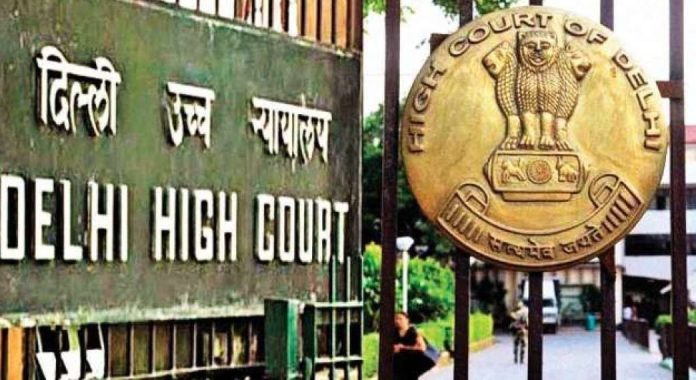The Delhi High Court on Monday dismissed a public interest litigation (PIL), which sought ‘extraordinary’ interim bail for Delhi Chief Minister Arvind Kejriwal, who is currently in judicial custody for his alleged involvement in the Delhi liquor policy scam case, till he completed his tenure in office, or till the time the trials were complete in all criminal cases registered against him.
The Division Bench of Acting Chief Justice Manmohan and Justice Manmeet Pritam Singh Arora further imposed costs of Rs 75,000 on the petitioner after noting that the petition was filed without any basis and that the petitioner did not have any power of attorney executed by Kejriwal authorising him to file such PIL.
The High Court observed that the petitioner’s claim of being a custodian of people was devoid of any basis. The petitioner held no power of attorney on behalf of the Respondent No. 5 (Kejriwal) to furnish any personal bond.
It said in the present case, R5 had the means and wherewithal to file a case and proceedings which he had already done before this court as well as before the Supreme Court.
It added that consequently, no relaxation of the concept of locus standi was called for, noting that the PIL was not maintainable.
The Bench further said that Kejriwal was presently under judicial custody pursuant to a court order, and the same has not been challenged in the present petition.
It added that this court in writ jurisdiction cannot grant extraordinary interim bail in a pending criminal case initiated against a person holding a high office.
The High Court noted that similar petitions filed earlier had been dismissed by the Court and the last such petition was rejected with cost of Rs 50,000.
Appearing for Kejriwal, Senior Advocate Rahul Mehra also opposed the plea on the grounds that it the prayers were completely ‘impermissible’.
Asking about the person who came to the court with this kind of matter, Advocate Mehra said this was a complete publicity interest litigation. He noted that these were ‘very sorry state of affairs’.
The petitioner claimed that he was representing the people of India and was concerned about the welfare of the people of Delhi since they were without an elected head of the government.
However, the Bench said that such an argument had been dealt with earlier too in similar petitions.
The petitioner filed the plea in the name of ‘We The People of India,’ arguing that he was not using his name because he did not want any publicity.
Arguing that he was representing the residents of Delhi, the petitioner contended that some people were trying to crush the reputation of Arvind Kejriwal by circulating false news on social media and since his arrest, the entire functioning of the Delhi government has come to a standstill.
He said the reputation of the Government of NCT of Delhi as well as the state of Delhi was going down in the eyes of the whole world due to the confinement of the Chief Minister of the NCT of Delhi in jail.
Filed through Advocate Karan Pal Singh, the PIL contended that even the judges would not be able to give back the time that Kejriwal spent in jail, in case he was acquitted of the charges.
The Chief Minister of the NCT of Delhi may or may not be guilty of the alleged offence(s), but it was a well-established principle of law that everyone charged with a penal offence had the right to be presumed innocent until proved guilty. As per law, in a public trial, he had all the guarantees necessary for his defense.
The petitioner also cited safety concerns and said that Kejriwal was confined in jail with hardcore criminals, who were facing cases of rape, murder, dacoity and even blast.
Kejriwal was arrested on March 21 by the Enforcement Directorate (ED) on allegations that he was the “key conspirator” in the money laundering case registered in the matter.
The arrest took place hours after his plea for interim protection from arrest was rejected by the Delhi High Court.
On March 22, Kejriwal was produced by the ED before judge Baweja, who initially remanded the Aam Aadmi Party (AAP) leader to ED custody till March 28.
On March 28, Kejriwal’s ED custody was extended further.
Finally, on April 1, Kejriwal was remanded to judicial custody till today.


